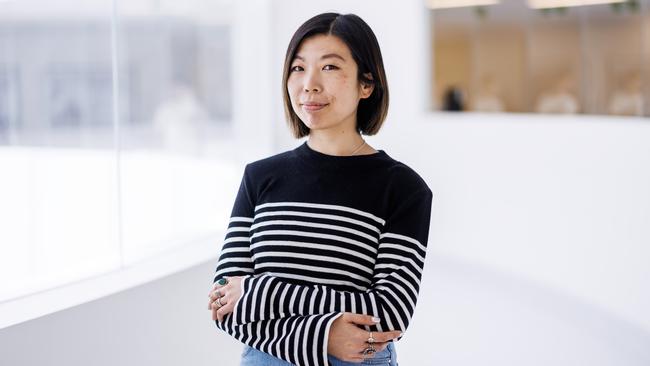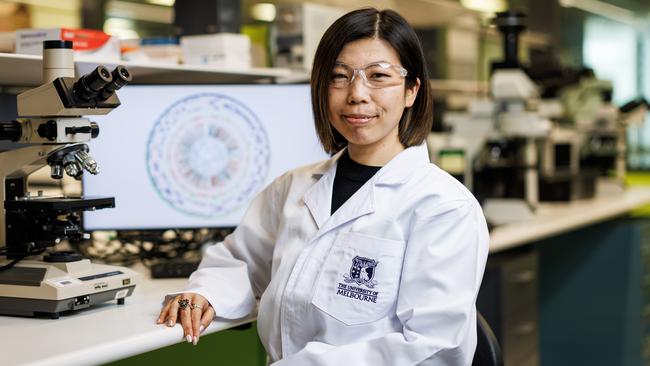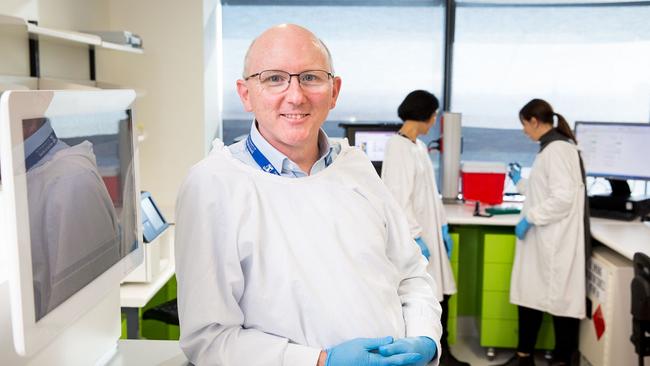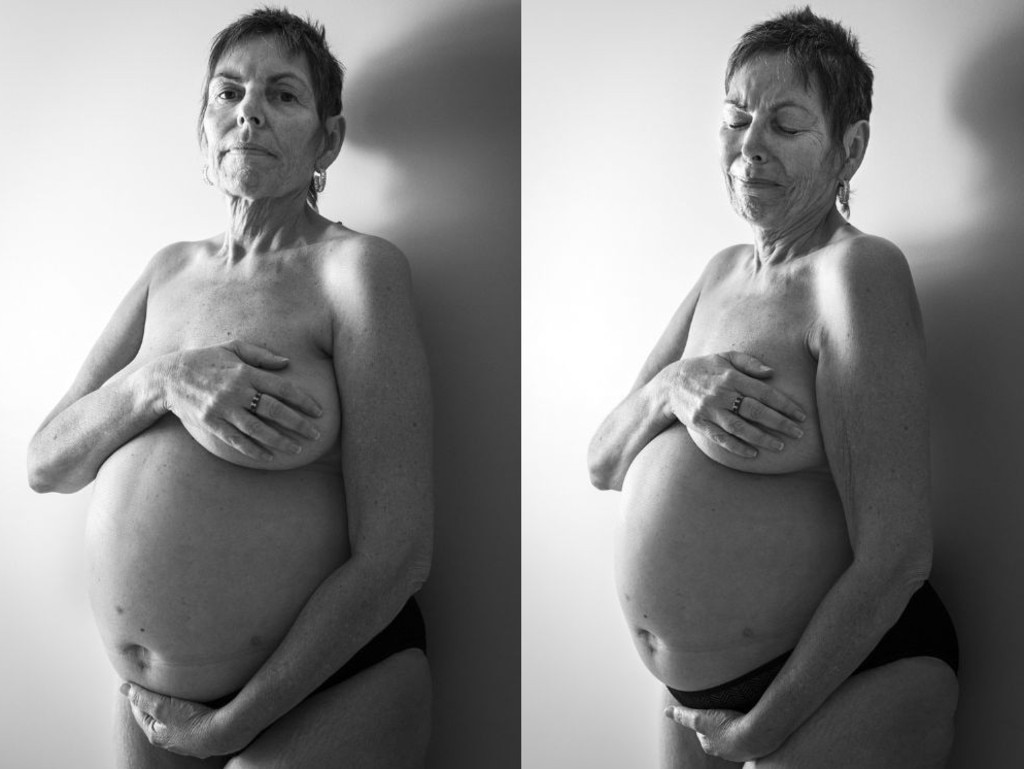Treating the person, not the disease: cancer centre turns to genomics
Layla Zhu’s experience fighting her own breast cancer has given her a greater understanding of how Peter Mac’s new centre for genomic medicine will help its patients, as well as research.

Layla Zhu was frantically trying to complete her PhD and relocate from Adelaide to Melbourne to take the next step in her scientific career when she discovered a lump on her breast.
She was then 29 years old.
“It was a really messy time so I was like, I’ll deal with it when I get settled,” she told The Australian.
Three weeks later, she was diagnosed with breast cancer.
Dr Zhu had been studying molecular and cell biology and, in a somewhat fortuitous twist, was taking up a new job at what’s colloquially known as the Peter Mac Centre, which just happens to be a world-leading cancer research, education and treatment centre.

That’s where she received her treatment, which included genetic testing due to her young age. None of those tests came back positive, but the experience made her want to not only understand more about genomic medicine, but also to be involved in it.
“I wanted to be in a position where I can learn about cancer in a very holistic and full picture,” Dr Zhu said.
“Everyone then pointed me to precision oncology using genomics. Cancer is kind of like an ecosystem, it’s like a living organism, there are many levels to it, and that DNA is just one of the levels. I guess genomics, at the moment, is the most established area when it comes to precision medicine in cancer.”
When she returned to work the year after her treatment, that’s where she turned her focus.
Genomics can map a person’s DNA and help to determine their risk of developing cancer. It can also create personalised prevention strategies, diagnose, and help to identify what therapies might work best for an individual patient. In short: it’s a more personalised prevention and treatment strategy.
But it requires both big data and investment.
Layla Zhu is one of the scientists now using it to help patients. She’s a curation scientist who examines the sequencing data of cancers, looking for mutations, patterns or changes to help to identify what some of the treatment options might be.
“The more I do this job I realise basically everything that we do gives patients options. I’m able to provide information that can empower the patients to make informed choices and then provide the option for them that they probably otherwise wouldn’t have access to.”
Genomics is the backbone of a new joint venture being launched in Victoria today.
The Collaborative Centre for Genomic Cancer Medicine is a partnership between the Peter MacCallum Cancer Centre and the University of Melbourne and aims to strengthen genomic development.
The Peter Mac centre is Australia’s only public health service dedicated to cancer treatment and research. It will bring together world-leading specialists in cancer, genomics and precision medicine to better allow them to treat an individual, as opposed to a disease. Its initial focus will be targeted at hard-to-manage cancers.
“These are the cancers that are difficult to accurately diagnose, those more likely to return or spread, and those that don’t respond well to treatment – where having a detailed genetic profile could immediately make a huge difference in how we approach them,” said Professor Sean Grimmond, the centre’s inaugural director.
“The reality is now we can get down to the absolute root causes of an individual’s cancer and we now know that there can be a lot of variation in those root causes and, in many cases, that directly influences which therapies may or may not work.”

Professor Grimmond said the Collaborative Centre for Genomic Cancer Medicine was the first national example of an academic-enabled genomics centre embedded within a cancer hospital. He hopes it will mean even more patients will have access to genomic care.
Within the next five years, those behind the centre hope their work will lead to new genomic testing that will be standard for all patients in Australia. But for that to happen, further government investment would be required.
Professor Stephen Fox is the centre’s director of pathology and said the centre would be an important step forward in the nation’s drive to increase the use of genomics.
“Currently, we rely mostly on morphology; that’s what it looks like down the microscope. But increasingly, we need genomic information in order to provide the diagnoses and, I suppose, the prognosis and together with the therapeutic decision.”
The facility will provide testing for patients and is focused on prevention, whereby researchers will try to identify people who are likely to develop cancer, all the way through to helping patients with diagnosis or therapy for advanced cancer.
Victorian Health Minister Mary-Anne Thomas said the collaboration would improve the lives of people with cancer.
“Victorian researchers continue to lead the way, and this new centre will help them deliver new therapies, treatments and trials for cancer patients across the state – no matter where they live or what type of cancer they have.”



To join the conversation, please log in. Don't have an account? Register
Join the conversation, you are commenting as Logout